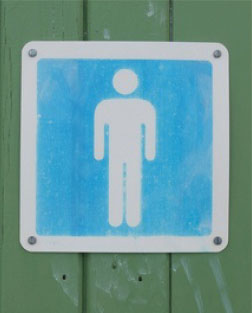
4D Brachytherapy for improved clinical outcomes

What are the symptoms?
There are normally no symptoms associated with the early stage prostate cancer. However, as the disease progresses and the tumour gets bigger it may compress and constrict the urethra (the tube which runs through the gland), obstructing the flow of urine during urination.
In this situation the patient may notice a weak, interrupted stream of urine that requires straining to urinate and to empty the bladder completely. On completion he may still feel that the bladder is not empty.
However these symptoms are not specific to prostate cancer and are most commonly found in benign non-cancerous enlargements of the gland. (This is known as benign prostatic hyperplasia or BPH.)
Blood in the semen may also be a sign of prostate cancer, although again, this is a common finding and not normally related to malignancy.
If a tumour has spread to the bones then it may cause pain. The spine is the most common site for this to occur.